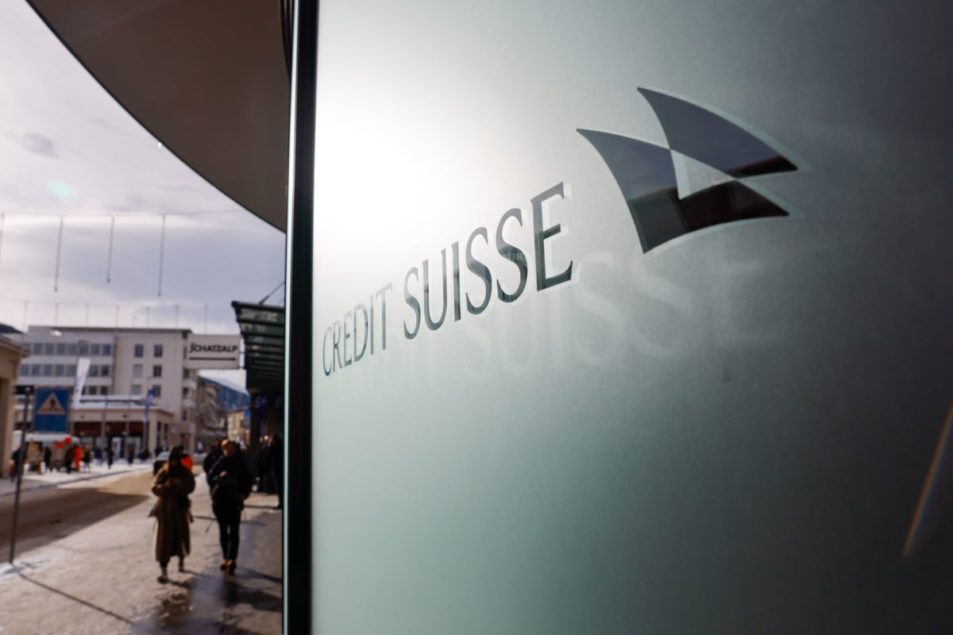
Credit Suisse Group AG “seriously breached” its risk management obligations in the Greensill Capital supply chain financing affair, Switzerland’s banking regulator, Finma, has concluded as it closed its probe against the bank.
The Swiss bank was ordered to take remedial measures by Finma, which include a periodic executive board level-review of the most important business relationships for counter-party risks, the regulator said in a statement February 28. The bank must also record the responsibilities of its 600 highest-ranking employees in a “responsibility document,” Finma said.
The regulator also said it was opening enforcement proceedings against four former managers at the lender, whom it didn’t name.
Credit Suisse Chief Executive Officer Ulrich Koerner said in a statement that he welcomed the conclusion of the probe. “Finma’s review has reinforced many of the findings of the board-initiated independent review and underlines the importance of the actions we have taken in recent years to strengthen our risk and compliance culture,” he said.
Credit Suisse shares fell 1.5% at 11:22 a.m. February 28 in Zurich.
Greensill Collapse
The implosion of Greensill Capital in March 2021 saw Credit Suisse freeze and wind down a $10 billion group of funds that the Swiss bank had marketed to clients as safe investments. The bank said last week that about $6.8 billion of the funds have since been returned to investors and will assess a further payout to investors in the first half of this year.
Still, the lender has warned of long legal fights to try to recoup the remaining money. Credit Suisse said in April 2022 that investors in its Greensill-linked funds should brace for a five-year fight with insurers and problem borrowers as they look to get more of their cash back.
Greensill’s collapse has sparked a number of inquiries and investigations in several countries. The firm, with the backing of SoftBank Group Corp. and General Atlantic, went from a small startup to a tech unicorn with an estimated $7 billion valuation at one point. David Cameron, the former U.K. prime minister, was an adviser to the firm and has faced criticism for his well-paid role at the company.
In its statement, Finma criticized the Swiss bank for its approach to risk management. Credit Suisse used employees who managed relations with Greensill to handle warnings, Finma said, which represented a clear conflict of interest as they were “not independent.” The bank also relied on Greensill founder Lex Greensill himself and his answers for its own statements, Finma concluded.
Credit Suisse made “partly false and overly positive statements” to Finma about the claims selection process and the funds’ exposure to certain debtors, according to the regulator.
As early as 2018, both media and Finma representatives were asking questions about the Greensill funds, the regulator said. There were “many critical observations, too few appropriate reactions,” according to Finma.
Finma’s powers to punish banks is limited as it cannot fine the institutions it oversees but only order them to repay profit they deem to be ill-gotten. Similarly, sanctions against individuals typically mean a ban from financial services for a certain period of time but rarely include lifetime bans.
Frozen Funds
The Greensill-linked funds initially invested in loans backed by invoices that would be paid in a matter of weeks or months, making them relatively safe. But as they grew in size, they strayed from that pitch and much of the money was lent against expected future invoices for sales that were merely predicted. Credit Suisse was ultimately forced to freeze the funds after a major insurer of the assets refused to continue coverage.
For Credit Suisse, the decision to suspend the funds added to a series of hits to the bank. The lender, which posted a fifth-straight quarterly loss earlier this month, cautioned that it expects another “significant” loss for this year.
Executives at the bank now face the challenge of managing a turnaround that isn’t expected to deliver profits until 2024, while trying to hang on to already disgruntled staff. The revamp is intended to reduce risk, spin out the best-performing parts of the investment bank and cut about 9,000 jobs by 2025.


